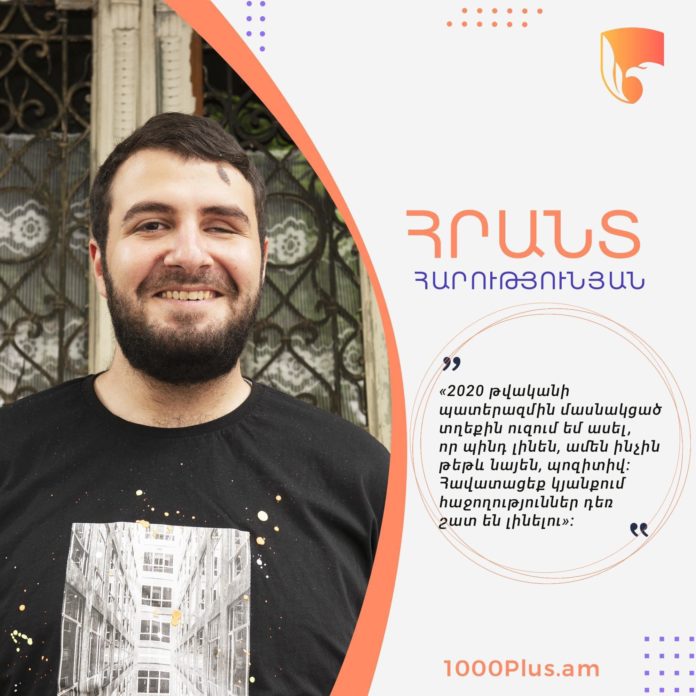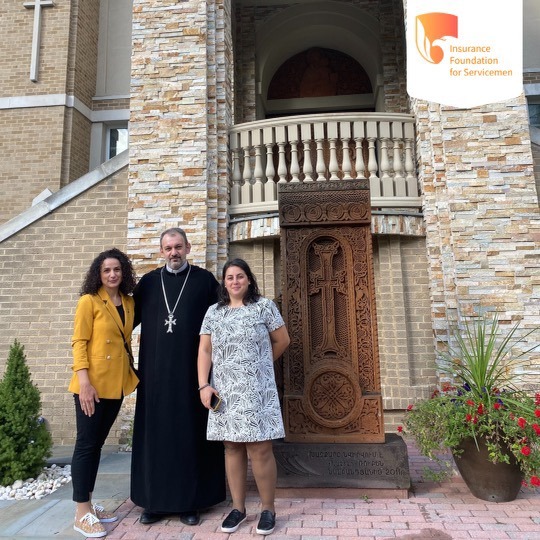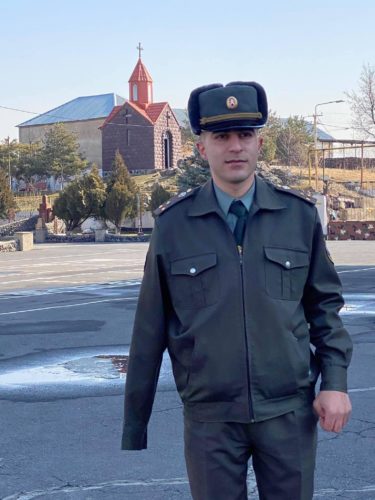YEREVAN — In a country with few resources, no life insurance or hefty pensions, the families of soldiers who were killed or severely injured in war are often left bereft of everything after paying the ultimate price of the loss or incapacitation of a loved one. Sentimentality butts up against two ugly truths: those loved ones are often the breadwinners and unfortunately, Armenia is in the shadow of a strong enemy that seems to be willing to launch strikes regularly.
Those reasons led to the creation of the Insurance Foundation for Servicemen (IFS), also known as 1,000 Plus, after the four-day 2016 war, which left about 100 casualties in its wake, said Sona Baghdasaryan, the group’s fundraising and donor relations manager.
The organization is basically a life insurance plan that pays a lump sum after the death or incapacitation of a soldier on duty and then makes payments for the next 20 years.
“We have a single mission to give monetary compensation to families of fallen soldiers or soldiers who have acquired a disability of first or second degree due to combat,” Baghdasaryan said during a recent interview from her office in Yerevan.
“We make sure that after they sacrifice their lives, they can live in comfort. We make sure they have a dignified life,” Baghdasaryan said, adding that the state itself can only offer a tiny monthly payment of about $80 to survivors of an injured soldier or a martyr.
“It’s a long-term financing that makes sure those families are not on the brink of poverty, because they make sure that we are safe,” Baghdasaryan said.












